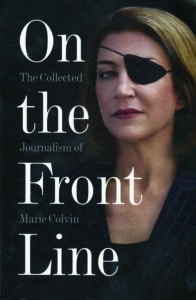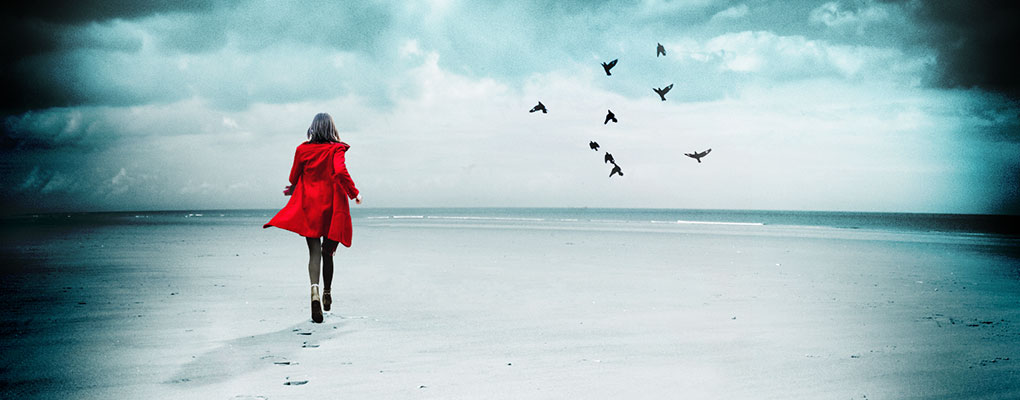Books
Dear Reader: a letter from Nuala Ellwood
Dear Reader,
On 22 February 2012, Marie Colvin, the award-winning Sunday Times Foreign Correspondent, was killed while covering the siege of Homs in Syria. Marie had long been a heroine of mine, from the moment I met her in the bar at the Chelsea Arts Club when I was twenty-four. For me, she personified the paradox of the female war reporter. She loved fashion and make up and gossiping with girlfriends over a bottle of wine yet she also had a formidable courage, a steely disposition that saw her report from some of the most brutal and terrifying conflict zones. What I loved about her was the way she always managed to extract the human story from the chaos and horror of war. Most of the reports she filed would begin with something ordinary, something we could all relate to. The family who had been sitting down to eat when moments later a bomb dropped on their house obliterating all but a six year old girl who spent the next few hours cowering under the very table that moments earlier had been a symbol of domesticity and safety. And I will never forget her dispatch from East Timor when she chose to stay put with stranded refugee women when all the men had fled, remarking that ‘they just don’t make men like they used to.’
 I loved the fact that, like my veteran journalist dad, she was old school. She wrote in notebooks, abhorred technology and travelled with a battered copy of Martha Gellhorn’s The Face of War for luck.
I loved the fact that, like my veteran journalist dad, she was old school. She wrote in notebooks, abhorred technology and travelled with a battered copy of Martha Gellhorn’s The Face of War for luck.
But like all heroines she was flawed. She drank heavily, she smoked, her private life was rather chequered, but for me this made her all the more interesting. As the daughter of a journalist, I have witnessed the highs and lows that come with the job and I wanted to create a character that, like Colvin, combined bravery with fragility.
And so my character Kate Rafter was born. A woman who was strong and courageous but whose continual exposure to the horrors of war had left her traumatised. In the course of my research for My Sister’s Bones I spoke to Dr Anthony Feinstein, a leading psychologist, who has worked with traumatized war journalists. He told me that when he started out there was almost no research being conducted into the link between PTSD and war reporting. I found this startling. However, when I spoke to journalists about this they said that very few of their peers would admit that they were having problems. Many reporters would rather bite their lip and carry on than to be seen to have ‘lost their nerve.’
A couple of weeks after Marie Colvin’s death I read a piece written by her sister, Cat, who described how, when they were children, her older sister, Marie, would curl up and tell her bedtime stories from far-flung places. When she had finished she would smother her sister’s face in ‘postage stamp kisses’ so she could go off and explore those wonderful places in her dreams. And it made me think about the relationship between sisters and what would happen if one went out into the world, fighting injustice, while the other stayed at home. And so I developed the character of Sally Cheverell, Kate’s sister, who was fighting her own internal battles that were just as tough as Kate’s physical ones.
Through the character of Kate Rafter I hope I’ve shown the strength and courage but also the fragility and humanity of the war reporter. As Marie Colvin herself said: “Bravery is not being afraid to be afraid.”
Nuala Ellwood



Please note: Moderation is enabled and may delay your comment being posted. There is no need to resubmit your comment. By posting a comment you are agreeing to the website Terms of Use.